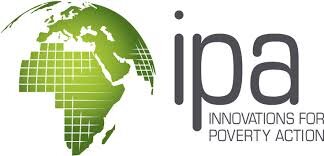Evidence Overview
At Educate!, we're obsessed with impact.
We continuously evaluate our approach to ensure that every investment results in better life outcomes for young people. We’re working alongside researchers, peers, policymakers, and young people to build a foundation of evidence that informs scalable, cost-effective, and highly impactful solutions.
Employment-focused Subject Delivered in Secondary Schools
We partner with schools, teachers, and governments to integrate an employment-focused school subject into national education systems, supporting government-led, system-level change for generations of youth. This approach is built with sustainability at its core, enabling end-to-end government adoption at national scale.
Proof of Concept:
2014 randomized controlled trial (RCT) at end of model with Innovations for Poverty Action (IPA)
See Educate!’s one-pager and the full write-up for the results
Impact at Scale:
2016 quasi-experimental evaluation (PSM) at end of model with BRAC's Independent Research and Evaluation Cell after scaling from 50 to 400 schools
See Educate!’s summary and the complete report to learn more
Long-Term Results:
4-year follow on RCT with researchers from the University of California-Berkeley, The World Bank, and Innovations for Poverty Action (IPA)
See Educate!’s interpretation memo and read the researchers’ executive summary and IPA’s summary for the results
See also an ROI estimate linking education gains to lifetime income
Validation of Systems-Change Model
After embedding components of Educate!’s in-school, direct delivery model into the national curriculum in Rwanda and supporting rollout with a 2-year teacher training model, we conducted a randomized controlled trial (RCT) with researchers from Oregon State University, the World Bank, and Innovations for Poverty Action (IPA)
See Educate!’s interpretation memo and the researchers’ 6-month post-graduation evaluation research paper for the results
Livelihood Bootcamps for Young Women Unable to Access Secondary School
We deliver livelihood bootcamps to rural young women and girls unable to complete secondary school, partnering across rural communities to uplift young people who face the greatest barriers to skill-building and employment.
Base of Evidence for Livelihood Bootcamp Innovation:
Evaluation of the Skills for Effective Entrepreneurship Development (SEED) training program, which incorporated and accelerated the curriculum and pedagogy of Educate!’s in-school, direct delivery model into a 3-week experience. 3.5-year follow-up randomized controlled trial (RCT) conducted with Innovations for Poverty Action (IPA) and the University of California-Berkeley
See an overview on the World Bank Blog by Gender Innovation Lab lead Markus Goldstein and the researchers’ report for the results


